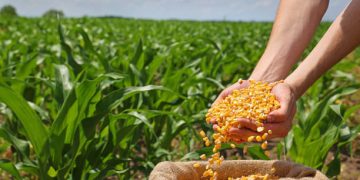The South African government has approved the import of yellow maize from Brazil to address potential shortages and manage costs in certain coastal regions. In some parts of South Africa, particularly along the coast, importing yellow maize from South America is currently more cost-effective than sourcing it domestically. The National Agricultural Marketing Council had earlier estimated that South Africa might need to import 383,000 tonnes of yellow maize, which is essential for animal feed production, due to a decrease in local production and rising prices caused by lower rainfall in key maize-producing regions.
Although price increases have slowed since the 19% surge between January and May, it remains R275-R300 per tonne cheaper for animal feed producers in regions like the Western Cape, Eastern Cape, and parts of KwaZulu-Natal to import yellow maize rather than transport it from domestic production areas.
By August 2, 168,000 tonnes of yellow maize had already been imported, according to the South African Cereals and Oilseeds Trade Association (Sacota).
Sacota noted that South Africa has specific regulations regarding genetically modified organisms (GMOs), which means maize imports can only come from countries with approved GMO cultivars that align with local standards. The imported maize is intended strictly for feed processing and cannot be used as seed.
Despite the complexities involved in aligning GMO regulations, the Department of Agriculture, Land Reform and Rural Development confirmed on Monday that Brazilian maize imports are now permitted.
Brazilian maize is expected to be slightly cheaper in the coming weeks, which could help mitigate rising local prices. Securing imports from the most cost-effective sources is essential for maintaining food security during times of shortage. Sacota emphasized the importance of having multiple international suppliers, particularly in light of export challenges from other countries.
Explore the newest supply chain news at The Supply Chain Report. Visit ADAMftd.com for free international trade tools.
#SupplyChainNews #SupplyChainNews #AgricultureUpdate #FoodSecurity #MaizeImports















